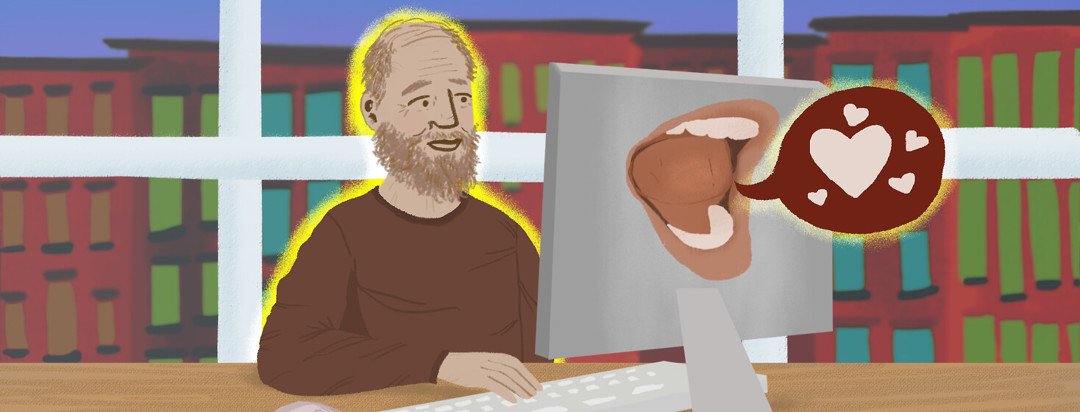How to Live with Loneliness When Living with MS
I read a fascinating article about loneliness in the December 2019/January 2020 issue of AARP titled “Is There a Medical Cure for Loneliness?” by Lynn Darling.
How loneliness affects cells in the body
According to genomics researcher Steve Cole, and based on his small study of lonely people, loneliness can cause white blood cells to “be in a state of high alert” - much like a bacterial infection.
“It was as though the subjects were under mortal assault by a disease - the disease of loneliness.”
The research compelled people to share
When news got around about Cole’s subsequent studies on loneliness, people told him how grateful they were for his work, then felt compelled to tell their stories of the disease and how it devoured them or their loved ones.
How loneliness impacts our health
Other studies by scientists began to surface, and the results were crystal clear - loneliness may shorten lives by attacking our bodies, becoming a contributing factor in heart disease, creating a vulnerability for Alzheimer’s, causing high blood pressure, increasing rates of suicide, and even causing the common cold.
Some even concluded that loneliness is equivalent to smoking fifteen cigarettes a day.
Loneliness is a disease
Make no mistake. Loneliness IS a disease, and it’s one that we in the multiple sclerosis community are very familiar with. When our struggles leave us home-bound, we’re less able to keep up with the world and we can begin to feel isolated. Any negative and desperate emotions can result in loneliness.
Loneliness can be more damaging than other illnesses
According to the article “The Cure for Loneliness” in Psychology Today, “Persistent loneliness is not only emotionally painful, but can be more damaging to our physical and mental health than many psychiatric illnesses. Lonely people sleep poorly, experience depression and anxiety, have reduced immune and cardiovascular functioning, and exhibit signs of early cognitive decline that grows more severe over time.”
The impact of isolation
Many years ago, I attended a luncheon celebrating a local MS organization. At the time, computers were in their infancy. Sitting at one table were two nurses who worked at a nursing home. They talked about some of their residents who had MS and were basically shut-ins. They had little to no social interaction with others. The residents' sadness was palpable, and that’s understandable. Living with progressive MS while being forced to leave loved ones behind to live in a facility where most of the residents were much older left them feeling derailed, powerless and lonely.
Social connection online
Suddenly, the nurses paused their conversation as they grinned and looked at each other. I wondered why. They were excited to reveal that out of nowhere, a donor provided new desktops for each MS patient. This singular act of kindness opened a new world of possibilities for social interactions via the internet. The patients' moods brightened.
The computers weren’t a magic pill to cure loneliness, but they sure were a positive step in the right direction.
Acts of kindness can make a difference
This story illustrates the seriousness of isolation and depression, and how small (or large) acts of kindness and thoughtfulness can make a difference.
Helping yourself out of loneliness
Here are a few thoughts on helping yourself out of loneliness. Because sometimes the way out of it is not to completely depend on others but to learn how to depend on yourself as best as possible.
Take responsibility for yourself
Fill your soul with whatever makes your heart sing. Books, music, poetry, or cooking. Find adaptive ways to help you do each. For example, Pinterest offers a section of suggestions for adaptive cooking tools.
Do what makes you happy
Learn to be comfortable with being alone, at least part of the time. I remember when my father-in-law passed away, my mother-in-law remarked how important it was for her to learn, for her mental and physical health, how to be alone. It’s important to remember that YOU are good company for yourself and there’s always so much to do in the world.
Have your own set of goals
People are wonderful to be with if they are kind, caring and understanding. But your goal shouldn’t only be to rely on them to fulfill your goals. You need to follow your own dreams, passions, and accomplishments. When you believe in yourself you’ll feel more valued in the world.
Allow yourself to feel lonely
It’s important to make peace with sometimes being alone. Don’t fight it but befriend it. Control how it affects you and accept it as being common and happens to everyone at one time or another.
Everyone will experience loneliness at some point
Of course, we all enjoy spending time with others - it’s what makes the world go around, right? Being alone all the time is not fun or optimal. We are basically social beings. But we should be prepared for those dips in the road when we find ourselves alone because it will happen at some point in our lives. Accepting loneliness as a normal part of life allows us to feel that we’ll always be totally, immensely, and wonderfully fine. And that is so worth the effort.

Join the conversation